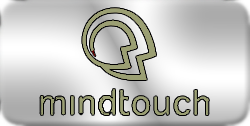Conclusion
With a myriad of web 2.0 technologies at our fingertips, writing teachers can easily become overwhelmed, confused, and simply give up. The purpose of this text has been to help you find a starting point, a thread, to the confusion that the web of technologies often provides and begin to unravel the mystery that lay within.
It is clear that even in the midst of such a web of tools, the right one can be located for your needs. In order to do so, please ask yourself these important questions first:
What are my course goals for using this technology?
What goals can this technology help me accomplish?
What do I want my students to do with technology?
What are the ethical questions to consider when implementing any new media technology into the writing classroom?
How can I expect my student population to respond to new media?
Are there issues of access, funding, literacy, time, or space that I need to examine beforehand?
After you have examined how the tool may fulfill your needs, move on to the other questions raised by Kris, Joe, Jeremy, Ruijie, Eden, and Toby. Finally, remember that while no technology is perfect and thus will not meet all your needs, this text is an example of picking and choosing; of combing the technologies you need to get the results you want.
The resources provided here are meant as a starting point, the wiki from the original C&W 2008 presentation provides further material, and the Internet contains much more. Your colleagues have expertise as well, so ask them for help as well. Each contributor to this text has used web 2.0 technologies in various ways in and out of the classroom. We hope that you will feel free to contact us if you are interested in using one of the tools mentioned and would like further guidance.
As always, Computers and Composition Online will continue to work to publish materials that we hope you will find helpful and timely. The professional development section provides hands-on, practical perspectives for integrating technologies into the writing classroom; from interviews to assignments, this section strives to be a resource for the work we do as computers and writing specialists as new media challenges arise. Additionally, the Computers and Composition Online Blog serves as a less formal, but very helpful venue to read about or even point out new ideas relevant to new media writing practices.
Contact us, too. We'd love to hear from you.
Joe Erickson - PhD Student, Rhetoric & Composition, Bowling Green State University
Toby Coley - PhD Student, Rhetoric & Composition, Bowling Green State University
Dr. Kristine Blair - Professor, English Department Head, Bowling Green State University
Jeremy Schnieder - PhD Candidate, Rhetoric & Composition, Bowling Green State University
Ruijie Zhao - PhD Student, Rhetoric & Composition, Bowling Green State University
Eden Leone - PhD Student, Rhetoric & Composition, Bowling Green State University






